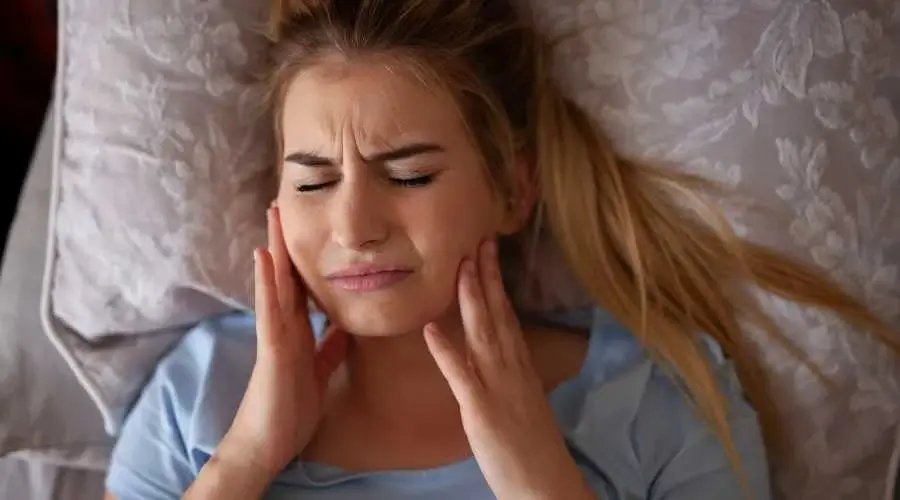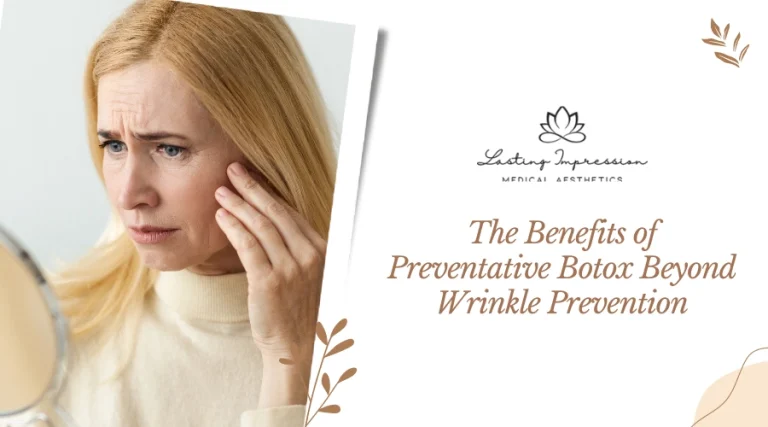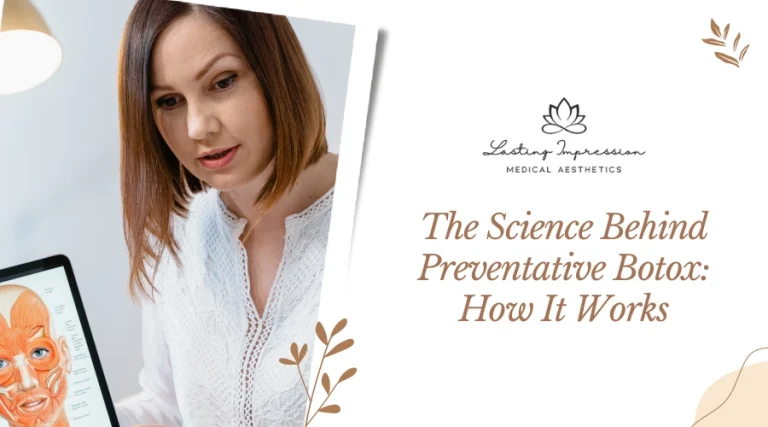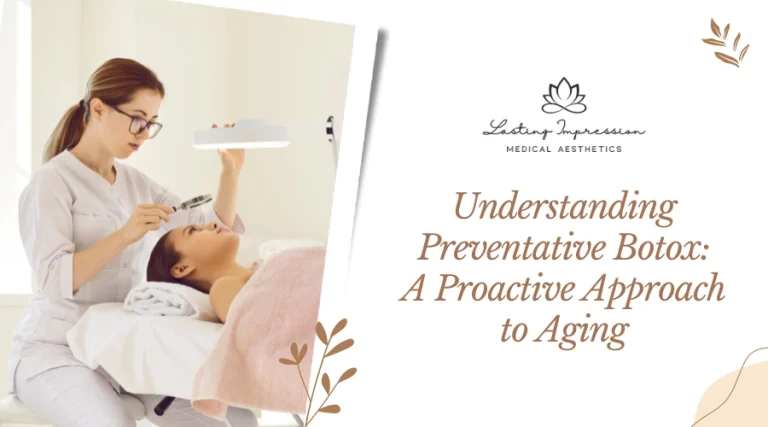Jaw discomfort and stress can drastically reduce quality of life. It can be highly upsetting to experience discomfort in the temporomandibular joint (TMJ), which serves as the hinge for opening, speaking, and chewing.
Other signs and symptoms of temporomandibular joint disorders (TMD) include severe headaches or migraines, jaw dysfunction, lockjaw, jaw clenching, teeth grinding, and neck, shoulder, or ear pain. When treating TMJ disorders, dentists frequently start by recommending a mouth guard to protect the teeth’s enamel, but this does nothing to address the tension in the jaw muscles and joints that is the root of the problem. Fortunately, patients can turn to board-certified Dr. Roel Galope in Fair Lawn, New Jersey for an effective treatment that significantly eases jaw strain and pain: Botox injections.
When most people hear “Botox treatment,” they immediately picture a procedure that reduces wrinkles and encourages a more youthful appearance. Although Botox is commonly used for cosmetic purposes, it is also FDA-approved for the treatment of a wide range of medical disorders, many of which are related to aberrant muscular contractions, such as muscle spasms or twitches. Botox is the best treatment option for TMJ issues since it acts to relax the muscle at the injection site to reduce tension there and prevent muscular contractions. TMJ symptoms include muscle tension in the face and jaw, jaw dysfunction, teeth grinding, and jaw clenching are all removed when Botox is used to treat TMJ.
What is TMJ Disorder?
The jawbone, also known as the mandible, is joined to the skull on either side of the face by the temporomandibular joint (TMJ), which functions as a hinge to let you open your mouth, chew food, and talk. The masseter and temporalis muscles, which are located around the temporomandibular joint of the jaw, contract to enable jaw movement. Temporomandibular joint issues can happen when the joint swells or moves out of place, causing facial pain such as lockjaw, tension headaches, tension-type migraines, swelling around the jaw, ear, shoulder, or neck stiffness, and facial stress. TMJ disorders may result from a number of risk factors, such as teeth grinding (bruxism), jaw clenching, overusing the masseter muscles while chewing, and general stress or anxiety. The severe and acute pain that can result from TMJ issues prompts many patients to search for any possible pain management solutions.
What Are the Signs of TMJ?
The start of TMJ issues can impair a patient’s capacity for chewing, swallowing, and speaking, which is extremely disruptive to daily living. Additionally, a lot of chronic pain and discomfort are linked to TMJ issues. Some signs of TMD include:
- Jaw ache
- Inability to fully expand the jaw or jaw dysfunction (also known as lockjaw) can cause pain while opening the jaw for chewing, swallowing, or speaking.
- headaches in general or migraines
- Neck discomfort, shoulder pain, ringing in the ears, or hurts in the ears
- muscular swelling in the face
- Jaw moving
- Face discomfort that is severe
- The symptoms of TMJ problems are widespread and lasting for many people. As a result, it is best to consult a medical expert to learn about the available pain-relieving treatments.
What is the Ideal TMJ Treatment?
TMD can be treated in a variety of ways, some of which are more successful than others. In order to avoid enamel damage when teeth grinding happens at night, dentists frequently start by prescribing a mouth guard or splint to patients who clench their jaw or grind their teeth. While wearing a night guard while you sleep helps to avoid tooth damage, it is unhelpful for people who may grind their teeth during the day because it doesn’t address the underlying problem of muscular tension.
Physical therapy, muscle relaxants, anti-inflammatories, or alternative therapies like acupuncture are some of the treatment strategies that can assist to relax the face muscles and relieve stress. However, injectable Botox therapy is the most successful method of muscular relaxation for the face. Botox is increasingly being used to treat TMD in dermatology and dentistry clinics because it prevents the masseter muscles from getting too big, which reduces facial pain and frees patients to tackle other underlying causes of TMD.
What is the Botox Procedure?
Most patients envision Botox being used in conjunction with dermal fillers for cosmetic objectives when they conceive of a Botox treatment. While Botox is frequently and successfully used for cosmetic purposes, the US Food and Drug Administration (FDA) has also licensed the drug to treat a number of medical disorders, such as muscular spasms, hyperhidrosis, cervical dystonia, blepharospasm, and strabismus. Botulinum toxin type A, a neurotoxin that inhibits neurotransmitters at the location of a muscle, is the main component of Botox. The muscle is injected with botulinum toxin, which prevents the muscle from contracting and instead causes it to freeze and relax. This works medically to relax overworked muscles or avoid muscular spasms, as well as cosmetically to smooth out dynamic wrinkles brought on by recurrent muscle contraction.
Can Botox Treatments Benefit People With TMJ?
In fact, one of the best therapies for TMJ issues is botox injections. Researchers showed that Botox dramatically reduced the symptoms of TMD, including severe jaw pain, swelling, headaches, neck and shoulder pain, and lockjaw, in a trial conducted in 2012. Another study found that 90% of individuals showed considerable improvement with Botox injections to treat their TMD, proving that Botox treatment is incredibly effective for the vast majority of TMJ patients. Dentists and dermatologists frequently use Botox injections when developing a TMJ treatment plan, they will assess the treatment area during your initial visit to ascertain the amount of injections required to lessen your TMD pain.
How Might Botox Provide a Solution for TMD & TMJ?
The neurotoxin botulinum toxin type A, which is used in Botox treatment, works to relax the muscles around the injection site. Overusing the masseter muscle through clenching and grinding the teeth (bruxism) is a common cause of TMJ issues. Bruxism can lead to TMJ issues and jaw tightness, both of which have severe side effects. Botox relaxes the face muscles and stops them from clenching when it is administered into the masseter muscle. As a result, the pain brought on by muscle tension disappears. Botox therapy also has the additional impact of helping to slim the face and improve facial esthetics. The masseter muscle can become overworked and bulk up, giving the face a square jawline. An advantageous side effect of the procedure is a thinner, younger-looking jawline as a result of the muscle relaxation caused by the injection of Botox.
The actual Botox treatment for TMJ is straightforward, efficient, and accessible in a dermatologist or dentist’s office. The specialist will decide how many injections are required to adequately treat your TMD and the injection sites after your initial visit. The majority of patients have only minor discomfort during the actual operation, although Dr. Roel’s clinic may use a topical anesthetic to further dull any potential pain. Patients can resume their routine activities right away after the operation. Mild adverse effects like swelling, bruising, redness, or discomfort at or near the injection site are possible for some people in the days after the procedure. Patients occasionally report more serious side effects, such as flu-like symptoms and/or muscle weakness.
Does TMJ Pain Relief with Botox Last Forever?
The pain that is a symptom of TMJ disorders, such as headaches, migraines, swelling facial muscles, soreness and pain in the neck, shoulders, and ears, and jaw dysfunction, can be effectively treated with Botox. Despite being quite successful at reducing pain, Botox’s effects only endure for 3 to 4 months. The effects of the botulinum toxin start to fade over time as the body metabolizes it. To keep the effects of the therapy, the Botox procedure can be repeated every four months.
What is Bruxisim?
The condition known as bruxism is brought on by persistent jaw clenching and teeth grinding. The problem causes the masseter muscle to be overworked, which can cause gum sensitivity, TMJ, lockjaw, jaw tightness, headaches from tension, and damage to the enamel. Bruxism is a common disorder that ranges in severity, results in chronic pain, and harms the teeth and temporomandibular joint permanently. Stress is one of the many risk factors that can cause bruxism, and it is also one of the most common. Our bodies stiffen up when we are under stress or anxiety. This constant strain might cause bruxism-related jaw clenching since it is frequently stored in the muscles along the jaw. Patients who have a family history of the disorder may also be more likely to develop bruxism. Other risk factors for the development of bruxism include excessive alcohol or caffeine consumption, as well as the use of certain antidepressants.
Is Bruxism Helped by Botox?
When it comes to treating bruxism, Botox is among the greatest therapeutic options. The masseter muscles in the jaw get larger due to excessive use in bruxism, which causes stress, enlarged facial muscles, stiffness, and pain. To relieve tension in the muscles on either side of the head, Botox injections into the masseter muscles are quite helpful. Botox acts to relax the muscle and stop it from contracting, which stops the jaw clenching and grinding of the teeth. By relieving the discomfort brought on by bruxism, patients are better able to concentrate on treating the condition’s underlying causes, such as stress and anxiety, without having to deal with the strain of ongoing discomfort.
Is Botox Effective for Jaw Clicking?
Jaw clicking is characterized by a clicking sound when your jaw moves to chew or speak and can be an indication of bruxism or temporomandibular joint diseases. Jaw clicking happens when the temporomandibular joint is injured in some way or is under too much tension, which prevents the joint from moving smoothly as it should. When the TMJ is tense or damaged, the jaw cannot move properly, producing a clicking sound and frequently impairing the ability to fully open the jaw. Botox is a great treatment option for tension in the jaw muscles brought on by bruxism and masseter muscle hypertrophy. The temporomandibular joint and muscular tension are decreased as a result of the Botox injection, allowing the jaw to function normally once more.
Does Botox Offer Relief for Teeth Grinding?
When stress or other environmental variables induce the jaw muscles to stiffen up, it can result in bruxism, or teeth grinding. The teeth are forced together by the strain in the jaw, which can cause daytime and nighttime grinding. The damage caused by teeth grinding is frequently treated by dentists with a night guard or splint, but this does not address the underlying problem of the jaw tension. Because of this, Botox is a very successful treatment for teeth grinding. When botulinum toxin is injected into the jaw muscles, it inhibits the muscle from tightening, keeping the mouth loose and preventing teeth grinding even while you are asleep. Both a dermatologist and a dentist can administer Botox for patients who grind their teeth.
Does Botox Work for Jaw Clenching?
One of the signs of bruxism is clenching of the jaw, which happens when the jaw muscles are under strain and cause teeth grinding, headaches, migraines, and face pain. Botox is the ideal treatment to ease the symptoms of jaw clenching because it stops the masseter muscle from contracting excessively, which is the cause of jaw clenching. A Botox injection effectively freezes the muscle, causing it to relax and stop clenching for up to three months after the procedure.
Will Botox Treat My Lockjaw?
Another sign of TMJ issues is lockjaw, which develops when the temporomandibular joint is under such intense strain that patients are unable to fully open their jaws. Patients with lockjaw may not be able to speak, chew, or swallow without suffering from excruciating agony. Lockjaw is quite disruptive to daily life, but Botox is fortunately a very successful treatment. When Botox is injected into the facial muscles, the tension that is the source of lockjaw melts away, essentially freeing the jaw. Botox therapy helps to relieve the nagging pain associated with lockjaw and restore the jaw’s full range of motion.
Does Botox Relieve Ear Pain from TMJ?
The stress in the temporomandibular joint and the facial muscles along the jawline can cause ear pain, which is a potential sign of TMJ disorders. The neck, shoulders, and ears are just a few of the locations around the jaw that can become tense. TMJ-related ear pain can be severe and long-lasting, and it can also result in ringing in the ears. TMJ Botox also aids in reducing ear pain brought on by muscle and joint strain. The procedure works to relax the muscle and ease the tension in the jaw, much like how Botox lessens other symptoms like lockjaw, jaw clenching, and teeth grinding. When the tension goes away, the surrounding areas, including the ears, relax, which takes care of the TMJ ear ache.
Do Mastectomies for TMJ Help?
TMJ can develop as a result of masseter muscle tension or overuse. TMJ disorders can be brought on by bruxism, which is characterized by jaw clenching or teeth grinding, and which can cause swelling, tension, displacement, and dysfunction of the temporomandibular joint. As a result, when Botox is injected into the masseter muscle, it also helps to relieve TMJ symptoms. A great “off-label” application of Botox is for TMJ. This indicates that Botox is still quite successful for treating TMJ, despite the FDA’s current denial of its use for this purpose, especially when administered by a skilled injector. Because Botox for TMJ has not yet received FDA approval, insurance companies frequently do not pay for the procedure.
Is Botox an effective TMJ treatment?
The symptoms of TMJ can be effectively treated with Botox. Botox injections into the masseter muscles can help treat numerous TMJ symptoms, including headache tension, facial pain, and soreness. It is generally advised that your Botox treatment be administered by a qualified medical expert with the training necessary to give you your desired results.







